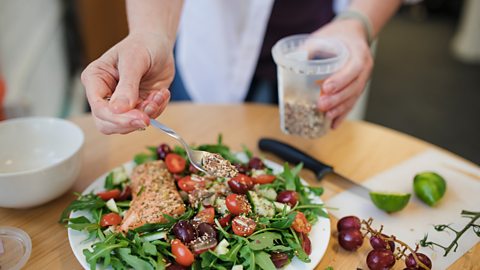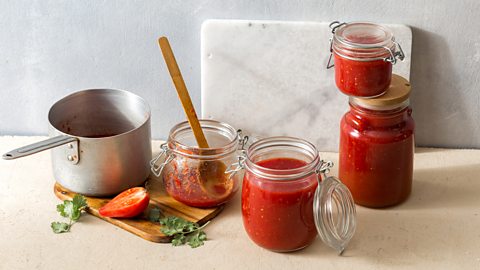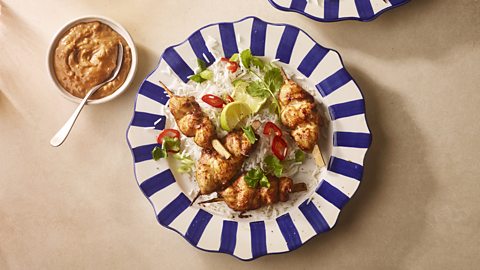Miriam Margolyes: ‘If you’re mean about fat people I hate you’
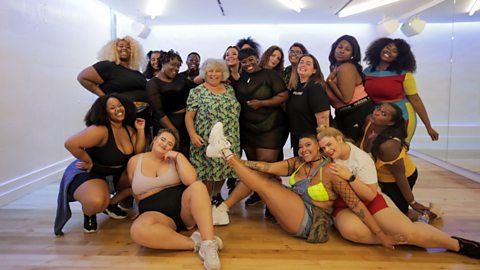
by Polly Weeks
If you sit down to watch a documentary about obesity, you probably don’t expect the presenter to start with: “It seems we’ve become a nation of humongous arses, sagging bellies and pendulous bosoms”. That is, unless she’s Miriam Margolyes.
The actress, who’s as well-known for her forthright and confident persona as she is for her roles, takes on the issue in BBC Two’s Miriam’s Big Fat Adventure.
“I was describing myself when I said that!”, explains the 78-year-old, laughing.
The two-part programme – which is “very personal” to the star, hits our screens at 9pm on Monday 9th and Tuesday 10th March. So what can you expect from it? We spoke to Miriam about the show and her concerns about her own body.
Miriam reveals how she feels about her body
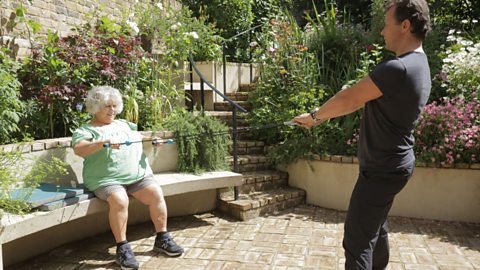
Miriam steps onto the scales at the start of the programme. She’s 78, 14 stone 10lb (93kg), 4’11” (1.5 metres) and we learn that her bmi is 41.6. “So I’m morbidly obese?”, she asks. “If that’s the terminology you want to use…”, says the health professional, who’s just handed Miriam her details on a print-out.
Miriam explains she’s spent “a lifetime” worrying about her weight, and that through the documentary she’s hoping to come to terms with it. On the show, she even goes so far as to say she’s “disgusted” by her body.
“I do feel like that”, she explains as we chat. “I think it’s mainly my sagging belly, I absolutely hate it. I’ve always had a bit of a fat tummy but, I don’t know, suddenly it’s just got huge and I’m really p****** off about it. And there it is, I’ll probably have it until I die, but I’m p****** off about it!”, she exclaims, before going even further: “It’s a challenge. I don’t like looking at myself naked and I don’t think anybody would, I think they’d rather go on barbed wire than look at me naked!”
Given Miriam’s playful personality, she says this half-seriously, half-laughing – and this mix of honest feelings and self-deprecation is exhibited throughout the programme. She shares her insecurities about her body while offering comforting, and sometimes stern but effective, words to others who are sharing their problems.
When she sees the support and help a group of children receive for their weight, she sighs and says, “I wish someone would have done that for me. I would have been saved from a lifetime of people saying things and laughing at me, and me feeling lousy. It would have made me a lot happier and a lot fitter, and I wouldn’t have to walk with a stick and all that b*******.” So was she nervous about showing this side of herself? “I think it’s very important to show vulnerability. If you are vulnerable, then not to hide it. So if that comes through I’m delighted!”
And come through, it does. Whether showing she’s slightly hurt by her friend’s admission that she thinks Miriam would lose her “powerhouse” personality if she became slim, or explaining that growing up she felt left out because of her weight – such as being last to be picked for school sports teams – she doesn’t hold back on revealing her experiences, which in turn means the people she meets don’t either.
Who Miriam meets along the way
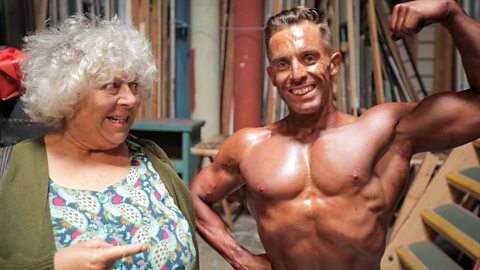
The first episode focuses on individuals who are tackling weight issues – whether they’re trying to lose it or battling public perception by embracing their body shape. In the second episode Miriam meets people getting help from the NHS, including some who’ve undergone surgery and children receiving intervention through games and fun challenges.
Each meeting clearly leaves a mark on Miriam and she realises everyone she meets has faced prejudice (and been made fun of) because of their size. “I believe I say in the programme – I haven’t seen it, I don’t watch myself – that I think it’s the last taboo to go… we’re a laughing stock and I think that's wrong.”
It’s this realisation that leads to her say: “If you’re mean about fat people I hate you, I hope you wither on the vine”, in the first episode.
But while there are sad moments, there are uplifting ones too. Seeing Miriam dance with a bunch of body-positive women, all of them cheering her on, is particularly grin-inducing.
The importance of friends
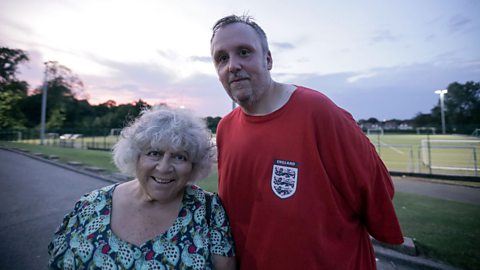
How people feel more confident when they spend time with others going through the same thing, is on display in episode one. We meet a 39-year-old man who’s been successfully dieting for two years via Man v Fat, an organisation that helps men improve their diet while creating an ‘in-it-together’ mentality through playing football.
“That was fascinating to me”, says Miriam. “They are very vulnerable and they (men) don't like to be. They sort of hide it all with a lot of nonsense, but these blokes weren’t like that. They were just very real and themselves.”
Opening up to each other had helped another group on the programme, who had signed up for a weight-loss retreat (two members had even formed a relationship there) – and of course it helped the dance class group. Is it a case of ‘strength-in-numbers’? Miriam believes so.
“When you're fat, you're somehow walking on shifting sands. You never feel quite confident, you feel uncertain and always a bit defensive, and I definitely got that from everybody.”
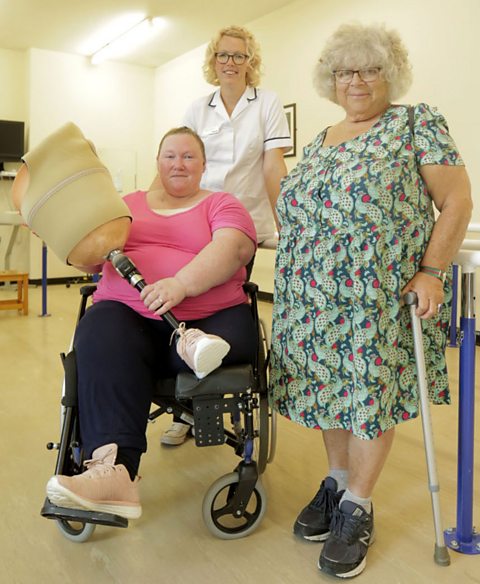
What advice would Miriam give?
What advice would Miriam offer people who watch the programme and feel they are struggling?
“I don’t know that it’s possible (to give advice). I mean, I would say ‘here’s my phone number, when you want to eat something that you think’s awful, ring me’. That's what I said to Angela.”
Angela is a contributor on the programme who is slowly learning to walk again, with the aid of a prosthetic leg, after she had to have her leg amputated because of Type 2 diabetes. On the show we learn the NHS deals with 23 new obesity-related amputees every day.
Pondering on the benefits of having people around to support you – whatever your issue is with obesity – Miriam says, “I think you can’t do it alone. Find a friend, someone you can speak to on the phone, so you're not doing it alone.”

What Miriam learned during the experience
“I certainly learnt that obesity is a very much more complex subject than I thought”, muses Miriam. “Because, I just thought it was about eating too much and not exercising enough, but there’s a lot more to it.
“And, there’s no question it’s harder for some people than for others. Oh, and the mental side of it as well, I didn’t really think about.
“I learnt that for sure I would never have bariatric surgery, that is not something I’d be prepared to do.” Miriam formed this opinion after spending time with two people who have had the surgery and a doctor who specialises in it – who revealed that around 15 percent of people who have the surgery go on to regain weight. She was surprised by the work involved in maintaining the weight loss.
“I wouldn’t be able to sustain the incredible, miserable discipline that they put themselves through for a year. I’d love to be thin, but I wouldn’t love to be thin that much – where I could never have a meal with friends again.”
Miriam talks about her diet
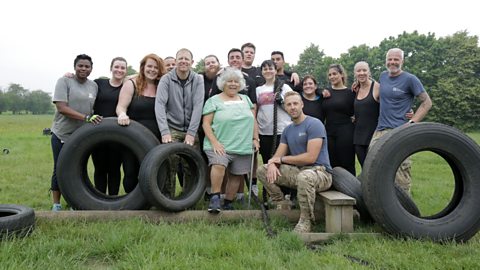
In terms of Miriam’s own eating habits, we see her snacking and eating meals on the show, but it’s not the usual food associated with obesity – an apple here, a radish or two there. (We see her munch on TWO raw onions as if it’s the most natural thing in the world!). It doesn’t look like she eats a particularly unhealthy diet. “No I don’t! I just eat more than I need, obviously!”, she says.
“Because the body stores fat, if I didn’t eat for a year then I’d probably be thin, but on the other hand I’d be miserable, so what do you do? You try to balance it out, don’t you?”
What she says next is something we don’t hear often in the BBC Food office. “I do not cook, I loathe cooking. I always say if I see a frying pan on TV I turn off the programme! My highest pleasure is somebody cooking for me. So I’m a lousy cook, people beg not to be asked to supper. I hate cooking. I like eating, I hate cooking”.
“So how do you go about eating?”, I ask, surprised by the admission. “I largely eat cold food, and when my PA comes she makes me scrambled eggs, which I love. I’ve found a Thai restaurant around the corner. It’s only been open a week and I’ve been there four times! I love salads. And I do eat healthily, I just eat a lot.”
Has Miriam’s outlook changed?
Given the different viewpoints Miriam encounters in the programmes, has it changed her outlook on her weight and body? “Yes, it hasn’t stopped me feeling self-disgust, but it’s made me realise it’s not perhaps altogether my fault, and I don’t hate myself for it. I’d like to be thin, but I’m more philosophical about it.”
“I think I’ve been very hard on myself, and I think fat people often are. I hope this programme will cheer people up a bit. I don’t want them to be miserable because of it. I think we’re all in the same boat – nearly everybody would like to lose weight and some people just can’t. It’s really, really hard.”
Watch BBC Two’s Miriam’s Big Fat Adventure at 9pm on 9th and 10th March or catch-up on iPlayer.
